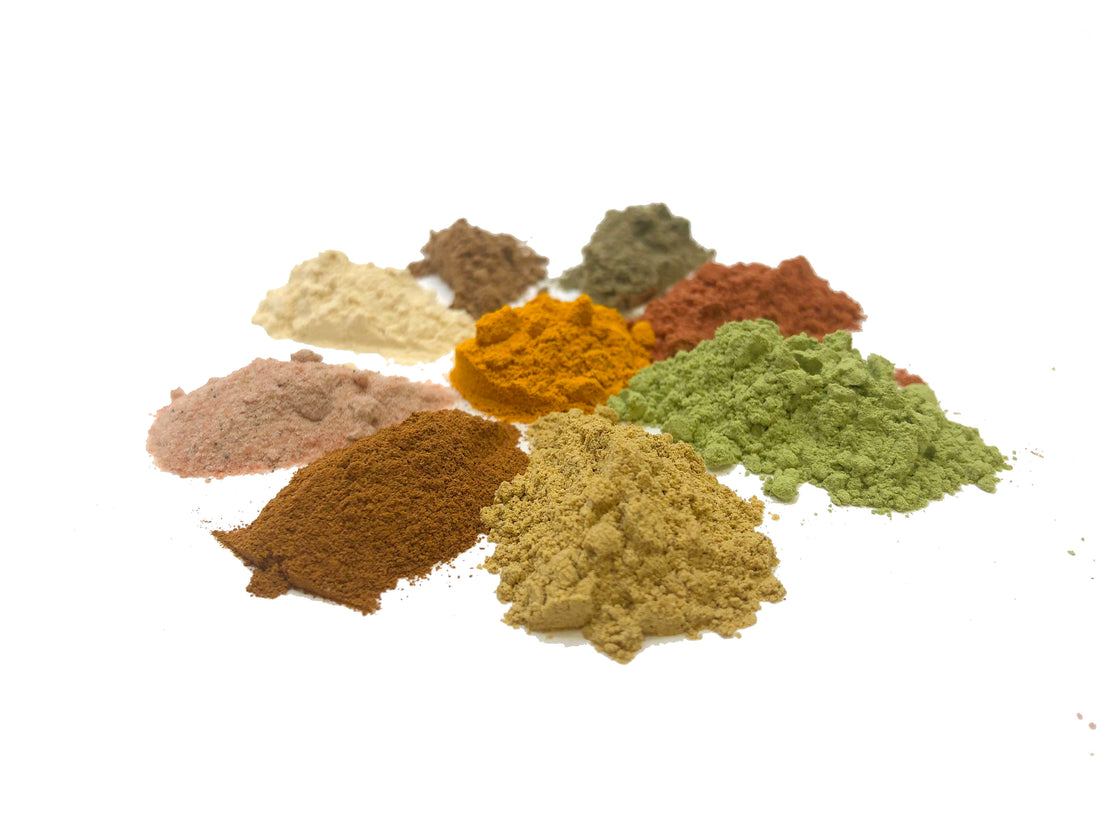In recent years, there has been a growing emphasis on organic products, including herbs and spices. Organic farming practices prioritize sustainability, biodiversity, and the absence of synthetic chemicals. As a result, organic herbs and spices have gained popularity among health-conscious consumers. However, the question remains: Are organic herbs and spices truly worth the hype? This article aims to explore the benefits and considerations associated with organic herbs and spices to help you make an informed decision.
Quality and Flavor
Organic herbs and spices are often praised for their quality and flavor. The absence of synthetic pesticides, herbicides, and fertilizers in organic farming practices is believed to contribute to a more authentic taste. When herbs and spices are grown organically, they are allowed to develop naturally, without the interference of chemical additives.
The use of synthetic chemicals in conventional farming can potentially alter the taste and aroma of herbs and spices. Some argue that organic herbs and spices offer a purer and more robust flavor profile because they are not tainted by chemical residues. The essential oils present in herbs and spices, responsible for their distinct flavors and aromas, may be better preserved in organic varieties.
Furthermore, organic herbs and spices are often harvested at the peak of ripeness, which can enhance their flavor. The focus on organic farming practices promotes a more careful and mindful approach to cultivation, resulting in products that are carefully tended to and selected for optimal taste.
It's important to note that taste preferences can vary among individuals, and what one person considers a superior flavor may not be the same for someone else. However, many enthusiasts of organic herbs and spices find that their culinary creations are elevated by the intensity and complexity of flavors that organic varieties offer.
Ultimately, the quality and flavor of organic herbs and spices are subjective experiences. Exploring and experimenting with different options can help you determine whether they meet your expectations and enhance your culinary endeavors.
Health Benefits

Organic herbs and spices are often associated with potential health benefits. Here are some considerations regarding their perceived advantages:
Avoidance of Synthetic Chemicals
Organic herbs and spices are grown without the use of synthetic pesticides, herbicides, and fertilizers. This means that they are less likely to contain residues of these chemicals, which some people believe could have negative health effects when consumed in large quantities over time. By choosing organic options, individuals may reduce their exposure to potentially harmful substances.
Reduced GMO Exposure
Organic farming practices prohibit the use of genetically modified organisms (GMOs). GMOs have been a subject of debate, and some individuals choose organic products to avoid the potential risks associated with genetically engineered ingredients. By opting for organic herbs and spices, you can minimize your exposure to GMOs.
Nutritional Content
Organic herbs and spices may contain higher levels of certain nutrients and antioxidants compared to conventionally grown varieties. This could be attributed to the absence of synthetic additives and the focus on organic farming practices that promote soil health and biodiversity. However, it is important to note that scientific studies on the nutritional superiority of organic herbs and spices have yielded mixed results, and the differences, if any, may be relatively small.
Overall Dietary Choices
Incorporating organic herbs and spices into your diet is often part of a broader commitment to a health-conscious lifestyle. Choosing organic options may be aligned with other dietary choices, such as consuming whole foods, minimizing processed ingredients, and emphasizing plant-based nutrition.
While the perceived health benefits of organic herbs and spices are a driving factor for many consumers, it is essential to approach these claims with caution. The scientific evidence on the direct health benefits of consuming organic herbs and spices is limited and inconclusive. It is crucial to maintain a well-balanced diet, rich in a variety of herbs, spices, fruits, vegetables, and other nutrient-dense foods, regardless of their organic status.

Considerations
When considering whether organic herbs and spices are worth the hype, there are several important factors to keep in mind:
Cost
Organic products, including herbs and spices, tend to be more expensive than their conventional counterparts. Organic farming practices involve higher production costs, certification fees, and often lower yields. This can result in higher prices for organic herbs and spices. It's important to assess your budget and determine whether the potential benefits of organic options outweigh the additional cost.
Availability
Not all herbs and spices may be readily available in organic form, especially in certain regions or during specific seasons. The availability of organic options may be limited compared to conventionally grown varieties. Consider the availability of organic herbs and spices in your area and whether it aligns with your preferences and needs.
Certification Standards
Organic products are subject to certification standards that vary by country and region. Different certifying bodies have specific criteria for organic farming practices. It's important to understand the certification standards used in your area and look for reputable organic certifications to ensure the integrity of the product you're purchasing.
Personal Priorities
Everyone has different priorities and values when it comes to their food choices. While some prioritize organic options for health and environmental reasons, others may prioritize factors such as local sourcing, fair trade practices, or supporting small-scale farmers. Consider your personal values and priorities when making a decision about whether organic herbs and spices are worth it for you.
Overall Diet and Lifestyle
The benefits of organic herbs and spices should be considered in the context of your overall diet and lifestyle. While they may offer certain advantages, it's important to focus on a balanced and varied diet that includes a wide range of herbs, spices, fruits, vegetables, and other nutrient-dense foods, whether they are organic or conventionally grown.
Conclusion
The choice to embrace organic herbs and spices ultimately depends on your personal values and preferences. If you prioritize intense flavors, potential health benefits, and supporting environmentally friendly practices, organic options may be worth exploring. Keep in mind that the scientific evidence on the nutritional superiority of organic herbs and spices is inconclusive, and affordability and availability may play a role in your decision-making process. By considering the various factors discussed, you can make an informed choice that aligns with your individual needs and beliefs.
Nataly Komova, fitness and nutritionist expert
Human Nutrition & Health, BSc Hons
To learn more about the writer visit their website.

